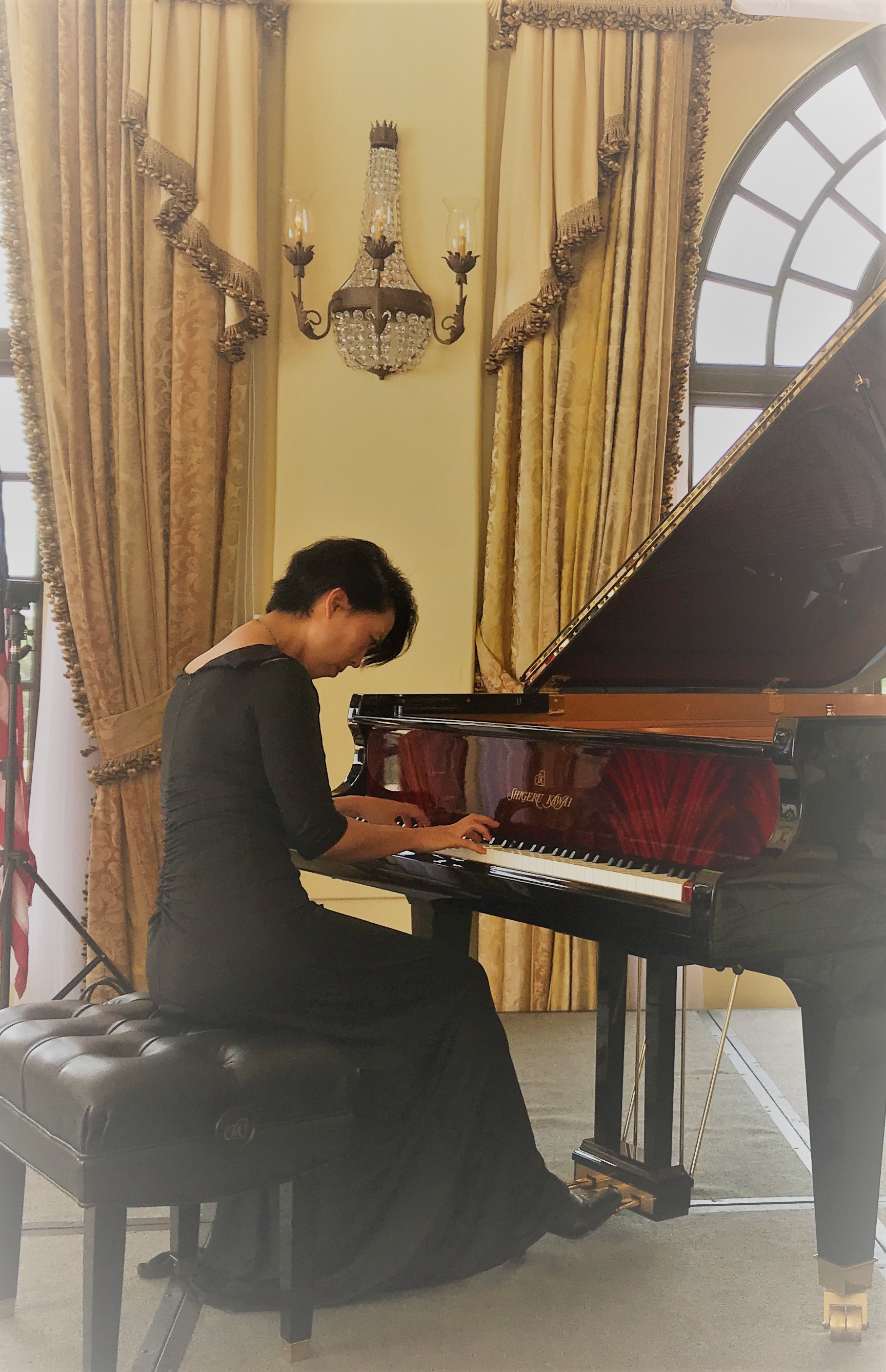This is the English translation of the latest entry from my bi-weekly column, The Way of the Pianist for Nikkan San to be published on Nov. 19th, 2023.
“Piano is a one-man orchestra,” said the 19th-century virtuoso, Franz Liszt.

Piano is the easiest instrument to make a sound. A push of a key by anyone’s finger would do. But that simplicity allows for a wide array of possibilities. After practice, one can learn to play chords with even more than ten notes. A fingers can bridge over two keys to press them both down simultaneously. You can use your forearms, from your elbow to your finger tips, and press all the keys you can cover by leaning into the keyboard, creating a cluster of notes. You can go up and down to and from the extreme ends of the keyboard in arpeggios and/or scales, creating waves with notes. Or, you can slide your fingers, or hands, up or down the keyboard in glissando, creating an avalanche with a glissando. If I were to compare piano playing to acting, these would be the equivalent of dramatic shouts, execution of a tongues-twisting monologue, or a virtuosic pantomime. The audience acknowledges these with loud cheers.
However, the ultimate test of a pianist’s artistry is to play various melodies, each with its distinct voice and character. This is like a one-woman play. The difference from a play is that in music, the different lines may have to be delivered at the same time. In a really complex polyphony like that of Bach’s, sometimes up to six voices are singing their each independent melody in its own register, speed and character.
Being able to deliver each melody with its own appropriate emotions has been a source of pride for me as a pianist, valuing and paying attention to each of them equally. I would highlight the voices in registers that are less audible, and obscure the melodies at the higher register that human ears gravitate towards. I practiced each line separately, choreographing its own expression through repetition so that even when put together with all the other voices, my fingers would know how to play with each of its independent inflections in every line.
One day last month, however, I had a revelation about how through all that effort to highlight every line, I was actually obscuring the direction and the overall structure of the piece.
The unlikely source of the revelation on my piano playing was my book editor. As some of my readers already know, I am in the process of writing a memoir on my fifteen-year battle with stage fright (working title “A Mermaid’s Soul: Reclaiming her Voice as a Japanese Pianist.”) In the book, I identify some of the underlying causes of my stage fright to be the racism, sexual objectification and harassment I found myself on the receiving end of repeatedly from my mentors and patrons. In the course of the book, I go back to school to conduct my doctoral research, where I realize how their damaging words and deeds were manifestations of the racism and misogyny inherent to the history of classical music. I put their acts in the larger historical context. I try to put myself in their shoes and explain away what they did to me as a result of their backgrounds and implicit biases. “You make a point of giving every character a background, almost psychoanalyzing them. Your commitment to avoid vilifying them is admirable, but its obscuring the point, and the structure of your story.” That was an aha! moment for me.
In theater, the lighting directs the audience’s gaze, clarifying as to where they should focus on. If you make the whole stage as bright as can be, the audience is blinded. Likewise, if you give each character as loud a voice as all the others, you obscure the plotline, the perspective and the overall point of what the book is about, and why the readers should keep on reading. You have abandoned your job as the artistic interpreter and producer. Whether it be writing or piano-playing, my responsibility as the content generator is not to each and every character or the melody, but to the overall story-telling and the music, to the readers and the listeners, and ultimately to myself, and my perspective.
I have a feeling that this may have been a life-changing realization for me.

Pingback: 美笑日記11.14:ピアノは一人芝居 - "Dr. Pianist" 平田真希子 DMA